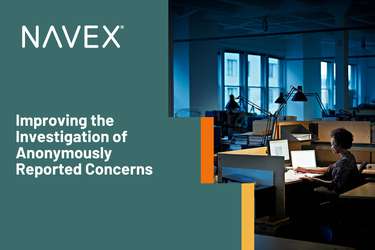“When it comes to hotlines, I have said many times that the ‘easy’ part is setting up a phone number. The hard part is what the organization does with reports once it receives them.” — Carrie Penman
My colleague Carrie wrote those words in November of last year, and they’ve come to mind frequently this week, in the wake of a New York Times story about whistleblower hotlines. The story presents the perspectives of several experts who take a dim view of hotlines. They allege that organizations “frequently” and intentionally either keep employees in the dark about the existence of hotlines, or ignore reports of wrongdoing, or retaliate against those who use the hotlines.
To imply that most organizations disregard or abuse hotlines simply doesn’t align with what we see and hear every day.
I addressed those allegations in a letter to the editor published by the Times. Neglect and misuse of hotlines is not the norm among large organizations. As compliance professionals we know that broadly speaking, there is room for improvement in corporate ethics and compliance programs. But to imply that most organizations disregard or abuse hotlines simply doesn’t align with what we see and hear every day. Furthermore, reporting without evidence that whistleblower hotlines are widely ineffectual is not only unfair, it’s counterproductive. If we want to eliminate unscrupulous corporate behavior, the last thing we should do is discourage employees from reporting it.
In order to be effective, hotlines must be supported by a strong overall ethics and compliance program.
To elaborate on a point I made in my letter: hotlines are a vital part of a robust ethics and compliance program, but they are only a part. Carrie articulated this in her November post, and we in the industry have long held it to be true. In order to be effective, hotlines must be supported by a strong overall ethics and compliance program. That includes policies and procedures for handling reports received through hotlines. And just as importantly, it includes robust training and awareness programs that educate employees and managers on how the systems work, and how to use them to report wrongdoing.
Like almost any technology, hotline systems can’t be effective unless human beings are routinely made aware of them, taught to use them and convinced of their value. This means not only technical training on how the hotline system operates but also training on the types of behavior employees should report. And as in all parts of an effective compliance training program, hotline training should clearly articulate the value of reporting in creating a culture of ethics and respect.
Of course, a subset of organizations might fail to take the requisite steps to educate their employees, or to implement sound processes for following up on hotline reports. But the data suggest that, overall, companies are getting better at encouraging and handling whistleblower reports. According to NAVEX Global’s 2017 Hotline Benchmark Report, the median rate of hotline reporting jumped eight percent last year, from 1.3 to 1.4 reports per 100 employees. And the average time it takes to resolve hotline complaints dropped by four days compared to the previous year.
That’s encouraging — and worth remembering when you hear about critics attacking our profession, or the people and organizations we serve.
Download the 2019 Hotline & Incident Management Benchmark Report








